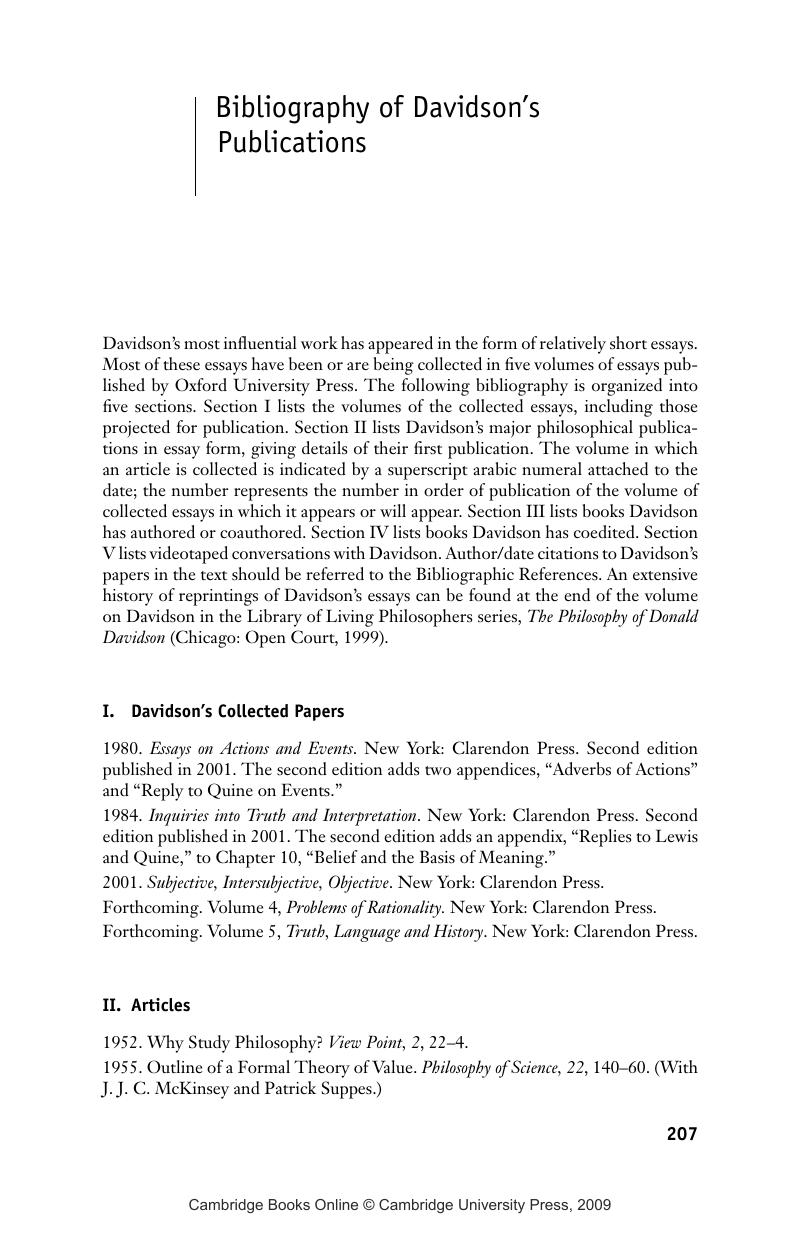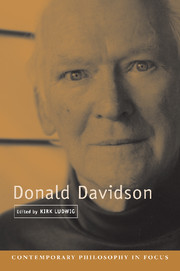Book contents
- Frontmatter
- Contents
- List of Contributors
- Introduction
- 1 Truth and Meaning
- 2 Philosophy of Action
- 3 Radical Interpretation
- 4 Philosophy of Mind and Psychology
- 5 Semantics and Metaphysics of Events
- 6 Knowledge of Self, Others, and World
- 7 Language and Literature
- Bibliography of Davidson's Publications
- Selected Commentary on Davidson
- Bibliographic References
- Name Index
- Subject Index
- References
Bibliography of Davidson's Publications
Published online by Cambridge University Press: 02 December 2009
- Frontmatter
- Contents
- List of Contributors
- Introduction
- 1 Truth and Meaning
- 2 Philosophy of Action
- 3 Radical Interpretation
- 4 Philosophy of Mind and Psychology
- 5 Semantics and Metaphysics of Events
- 6 Knowledge of Self, Others, and World
- 7 Language and Literature
- Bibliography of Davidson's Publications
- Selected Commentary on Davidson
- Bibliographic References
- Name Index
- Subject Index
- References
Summary

- Type
- Chapter
- Information
- Donald Davidson , pp. 207 - 213Publisher: Cambridge University PressPrint publication year: 2003



